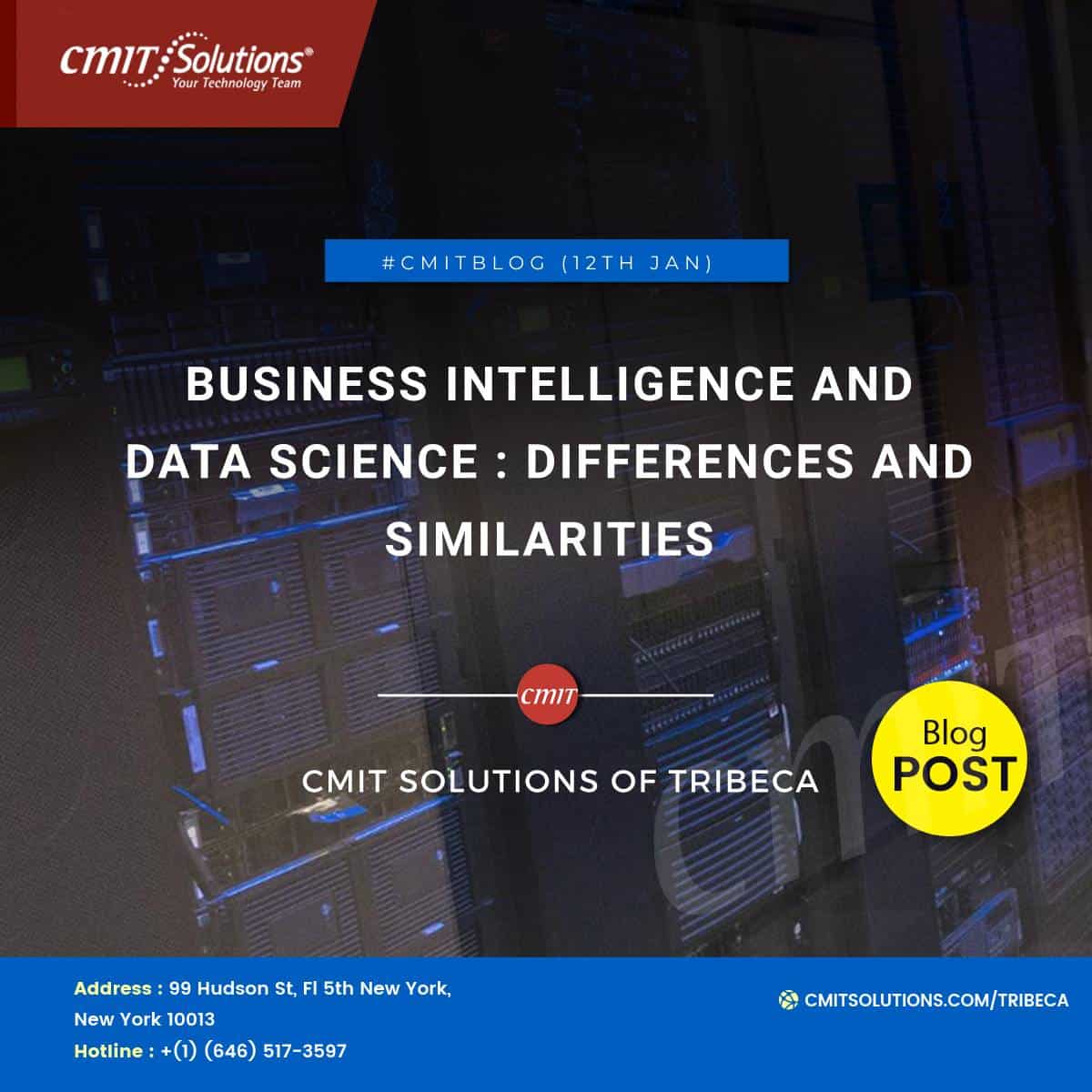Disruptive technologies such as Artificial Intelligence, Data Science, Blockchain, and others are still relatively new to businesses. Early acceptance, on the other hand, is difficult, and most new ideas never make it beyond the proof of concept stage. Because of the novelty of the technology used, the failure rate is considerable. Because data science is new, it necessitates new standards and cooperation in a traditional corporate setting. Novelty-related complications are difficult to foresee. Before project creation and execution, a greater grasp of new technologies is required.
Getting to Know Business Intelligence
What is Business Intelligence, and how does it work? Business intelligence is an umbrella phrase that encompasses the applications, infrastructure, tools, and best practices that allow access to and analysis of data to enhance and optimize choices and performance. It’s a notion that outlines concepts and ways for employing a fact-based support system to improve corporate decision-making. Today’s business intelligence is more than simply business reporting; it’s a smart system that includes interactive dashboards, analytics, contingency planning, and reporting control, among other things.
Because it is such a broad term, BI has diverse meanings for different businesses. Others may employ sophisticated prediction approaches based on a statistical model and advanced technologies, while others may utilize business intelligence as a KPI- a key performance indicator reporting on all infrastructure modules.
What are the advantages of employing Business Intelligence for an organization?
By displaying current and historical data within the context of their company, BI assists firms in making better choices. Analysts may then use the business information to give competition and performance benchmarks in order to improve the efficiency of an organization’s operations. BI enables in-depth real-time consumer insights, answers crucial business questions fast, decreases data input time, and identifies/examines areas where cost-cutting and budget allocation are required. Business intelligence improves a company’s internal efficiency by indicating which areas need more time and effort.
When does my firm need Business Intelligence?
Business intelligence may be beneficial to any corporation. However, there are certain telltale signs that your company needs BI technology. As an example —
- If your company’s operations, news, finances, and other data aren’t visible,
- If you need to combine data from a variety of sources and business applications,
- If a merger or acquisition is in the works, or if the firm is enjoying significant expansion,
- As a result of the launch of new goods or services
- If the company’s IT infrastructure has to be upgraded,
- If there is a rising need for rapid access to important corporate data, as well as a growing number of end-users who want information and analytical skills.
Allowing workers to access and manage analytical and operational data has been proven to boost job efficiency by monitoring real-time efforts alongside the company strategy.
Business Intelligence Tools at Their Finest
There are plenty of excellent business intelligence solutions on the market to examine. However, before you make your decision, there are a few things to think about:
Compatibility — Many business intelligence products are not comprehensive, end-to-end solutions. Many businesses must purchase BI software from various providers. If your company’s requirements aren’t met by a single product, you’ll need to inquire about integration and compatibility with other applications.
Usability – certain business intelligence products are sophisticated and provide a lot of customization options, which may be difficult for non-technical users to understand. If you require more complicated capabilities, you should think about the technical skills of the people who will be using the BI tools.
Scalability — certain BI solutions don’t scale effectively as data volumes increase. As a result, you must analyze the range of data created by your firm and determine if the volume will remain constant or increase. If the amount of data grows, you must pick a business intelligence solution that can manage the predicted rise.
Each of the BI tools listed below is dashboard-focused and aimed at SMEs and big businesses.
Why are Business Intelligence and Data Science used interchangeably?
So, how does Data Science vary from Business Intelligence? From a business standpoint, there isn’t much of a distinction between data science and business intelligence since both assist business choices by supplying necessary data. This is perhaps why, when beginning new initiatives, data science seems to be similar to business intelligence. It is believed that a data science project may be carried out using the current business intelligence infrastructure based on this premise.
This is where the troubles begin: since data scientists utilize distinct libraries and tools, the current business procedures and rules cannot accommodate what a data scientist needs from the data. So, if business intelligence and data science are fundamentally the same, why and how are the additional criteria proving difficult for firms looking to transition from BI to data science projects?
What’s the difference between Business Intelligence and Data Science?
To grasp the basic difference between the two conceptions, one must alter one’s viewpoint, which entails altering the sort of topic they answer.
Business intelligence aids in the monitoring of current business information to comprehend a company’s prior performance. It makes use of a formula to generate new values for previously known factors.
In the meanwhile, Data Science is a collection of multidisciplinary disciplines that are used to develop new insights from existing corporate data. Data science does not use any formulas, instead of producing data that has never been analyzed before.
To conclude, business intelligence (BI) aids in the interpretation of previous data, whereas data science analyses historical data to develop future predictions. Descriptive analysis is done with BI, while predictive analysis is done using Data Science.
Business Intelligence Analysts vs. Data Scientists
The primary responsibility of BI analysts is to identify trends and patterns in your company’s historical data. They are more concerned with the “what” than with the “why.” A BI analyst often uses tools such as business intelligence dashboards to aid in the visualization of data. To handle data and query databases, they employ computer languages like SQL. These tools are used by business intelligence analysts to assess the impact of certain events on a company’s bottom line or to compare an organization’s performance to that of other companies in the same sector.
Data scientists, on the other hand, have a toolset of algorithms at their disposal for analyzing and forecasting a company’s performance. A data scientist will require a broader skill set based on machine learning, statistics, and programming to obtain this expertise. A data scientist must be fluent in languages such as SQL as well as languages for mathematical analysis such as Python, Scala, and R, among others. A data scientist utilizes these programming languages to build a framework that analyzes historical data and current data to anticipate information such as how much a company’s consumers will spend over time or when a group of customers will switch to rivals, for example.
This framework is known as a model, and it uses artificial intelligence (AI), primarily machine learning, to detect associations between various factors such as demographic age and average order value to forecast how much a certain customer is prepared to spend. This model is regularly updated with fresh data, ensuring that future outcomes and forecasts remain relevant and accurate—something that a data scientist (rather than a BI analyst) is responsible for.







